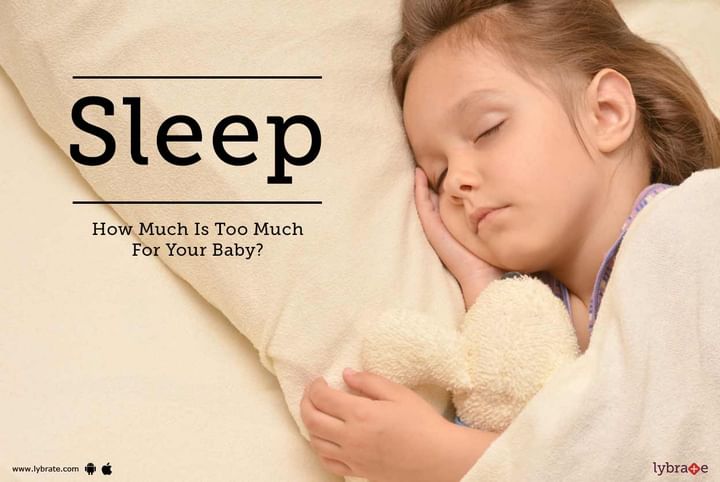Sleep - How Much Is Too Much For Your Baby?
Sleep is an essential part of a child's growth and development journey. Sleep helps the child develop both physically and mentally. Thus, it is important for every child to develop good sleeping habits. The amount of sleep a child requires varies from child to child and according to their age. Here's a broad guideline for how much sleep your child should be getting depending on their age.
Less than a year
The confusion between day and night ends when the baby is about 4 months old. This is when you will notice regular sleep patterns emerging. By the time they are 6 months old, most infants have a regular sleep and wake cycle. At this age, your baby needs at least 15 hours of sleep a day. The goal here is to establish healthy sleeping habits.
1-3 year old
After their first birthday, toddlers tend to reduce their number of day-time naps. But they still require 11-14 hours of sleep a day. Let your child take a 1-3 hour afternoon nap and put them to bed early, so that they can get a full night's sleep.
3-6 year old
Naps gradually become shorter as the child grows up. These pre-schoolers need 10-13 hours of sleep a day. At this age, it is a good idea to encourage your child to fall asleep on their own. They should no longer need an adult to put them to sleep. They should also learn to fall back asleep on their own, if they wake up in the middle of the night.
7-12 year old
A pre-teen needs 10-11 hours of sleep a day but the average sleep they get is about 9 hours. The challenge at this age is to not allow bedtime to get very late. Once they start going to school, children have a fixed time to wake up. Thus, a late bedtime will give them inadequate sleep.
12-18 year old
Teenagers require 8-9 hours of sleep a day. In no way should they get less than 7 hours of sleep. It is a good idea to keep the television and computer out of their bedroom. Also, avoid letting them have caffeinated drinks before sleeping.
Poor or inadequate sleep can lead to a number of health complications as well as mental disorders such as ADHD and cognitive problems. Thus, it is important for your child to not only follow a regular sleep schedule, but also to have restful sleep. If you wish to discuss about any specific problem, you can consult a Pediatrician.



+1.svg)
